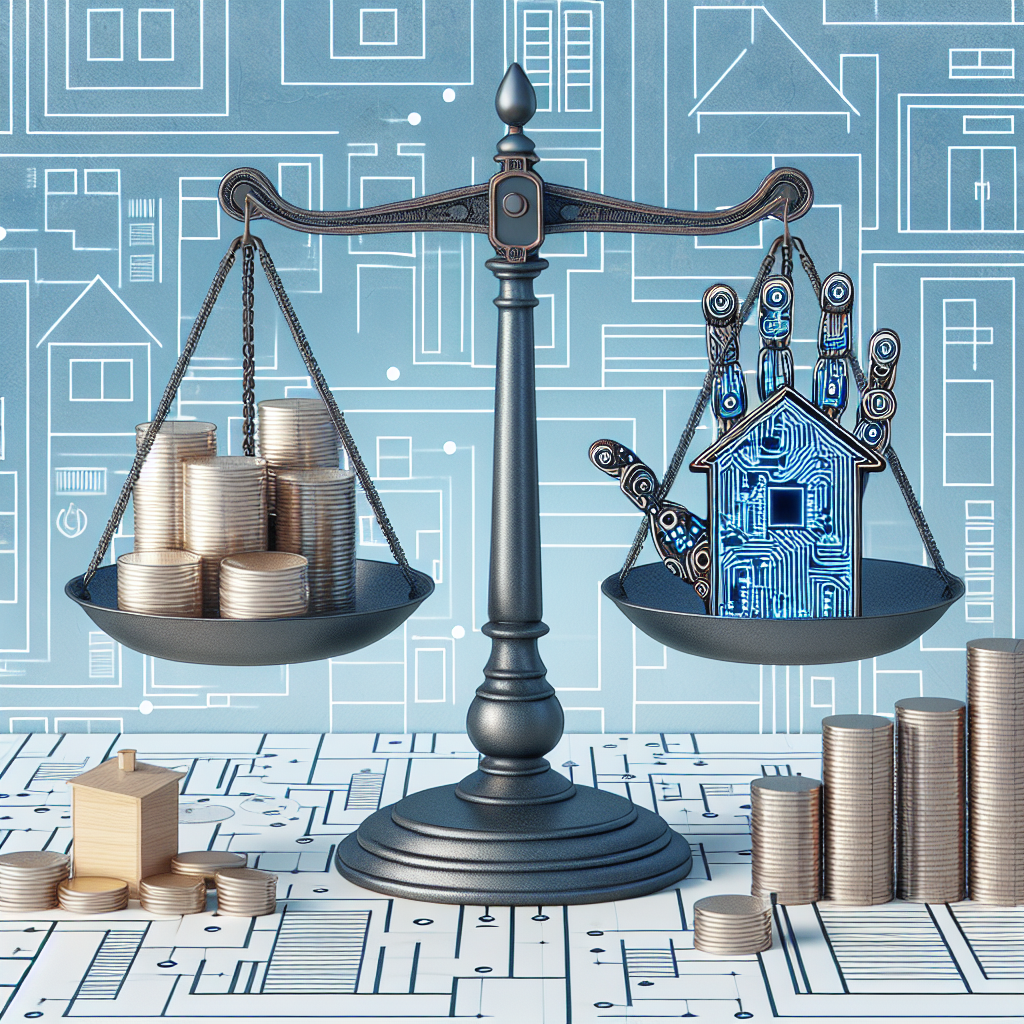The real estate industry has seen significant advancements in recent years due to the integration of artificial intelligence (AI) technology. One of the key areas where AI has made a substantial impact is in asset pricing. Real estate asset pricing is a complex process that involves analyzing various factors such as location, market trends, property characteristics, and more. Traditionally, pricing was done manually by real estate agents and appraisers, but AI has revolutionized this process by providing more accurate and efficient pricing models.
AI algorithms are able to analyze large datasets and identify patterns that may not be immediately apparent to human analysts. This allows for more accurate pricing models that take into account a wide range of factors that can impact the value of a property. By using AI, real estate professionals can make more informed decisions about pricing, leading to better outcomes for buyers, sellers, and investors.
One of the key ways in which AI is transforming real estate asset pricing is through the use of machine learning algorithms. These algorithms are able to analyze historical sales data, market trends, and other relevant information to predict future property values. By using machine learning, real estate professionals can better understand the factors that influence property prices and make more accurate predictions about the future value of a property.
Another way in which AI is transforming real estate asset pricing is through the use of natural language processing (NLP) technology. NLP allows AI systems to analyze and interpret text data, such as property listings, market reports, and other sources of information. By using NLP, real estate professionals can quickly and efficiently extract relevant information from large amounts of text data, allowing them to make more informed decisions about pricing.
AI is also being used to automate the valuation process, reducing the time and resources required to price a property. Traditionally, property valuations were done manually by appraisers, which could be a time-consuming and labor-intensive process. By using AI-powered valuation tools, real estate professionals can quickly and accurately determine the value of a property, saving time and improving efficiency.
In addition to improving accuracy and efficiency, AI is also helping to reduce biases in real estate asset pricing. Human analysts may have unconscious biases that can influence their pricing decisions, leading to inaccurate valuations. AI algorithms are able to analyze data objectively and make pricing decisions based on data-driven insights, reducing the impact of biases on pricing decisions.
Overall, AI is transforming real estate asset pricing by providing more accurate, efficient, and unbiased pricing models. By leveraging AI technology, real estate professionals can make better decisions about pricing, leading to improved outcomes for buyers, sellers, and investors.
FAQs:
1. How does AI impact real estate asset pricing?
AI impacts real estate asset pricing by providing more accurate, efficient, and unbiased pricing models. AI algorithms can analyze large datasets and identify patterns that may not be immediately apparent to human analysts, leading to better pricing decisions.
2. What are some of the key ways in which AI is transforming real estate asset pricing?
AI is transforming real estate asset pricing through the use of machine learning algorithms, natural language processing (NLP) technology, and automated valuation tools. These technologies allow real estate professionals to make more informed decisions about pricing, improve efficiency, and reduce biases in pricing decisions.
3. How can real estate professionals leverage AI technology to improve asset pricing?
Real estate professionals can leverage AI technology by using machine learning algorithms to analyze historical sales data and predict future property values, using NLP technology to extract relevant information from text data, and using automated valuation tools to streamline the valuation process. By incorporating AI technology into their pricing strategies, real estate professionals can improve accuracy, efficiency, and objectivity in their pricing decisions.
4. What are some of the benefits of using AI for real estate asset pricing?
Some of the benefits of using AI for real estate asset pricing include more accurate pricing models, improved efficiency in the pricing process, reduced biases in pricing decisions, and better outcomes for buyers, sellers, and investors. AI technology can help real estate professionals make more informed decisions about pricing, leading to improved profitability and success in the real estate market.

